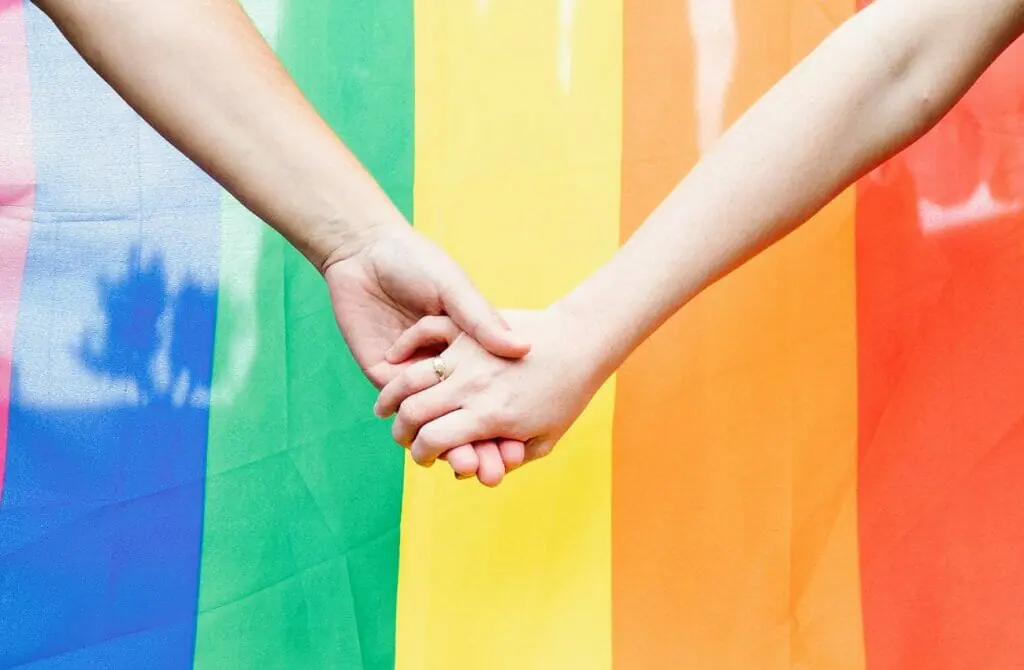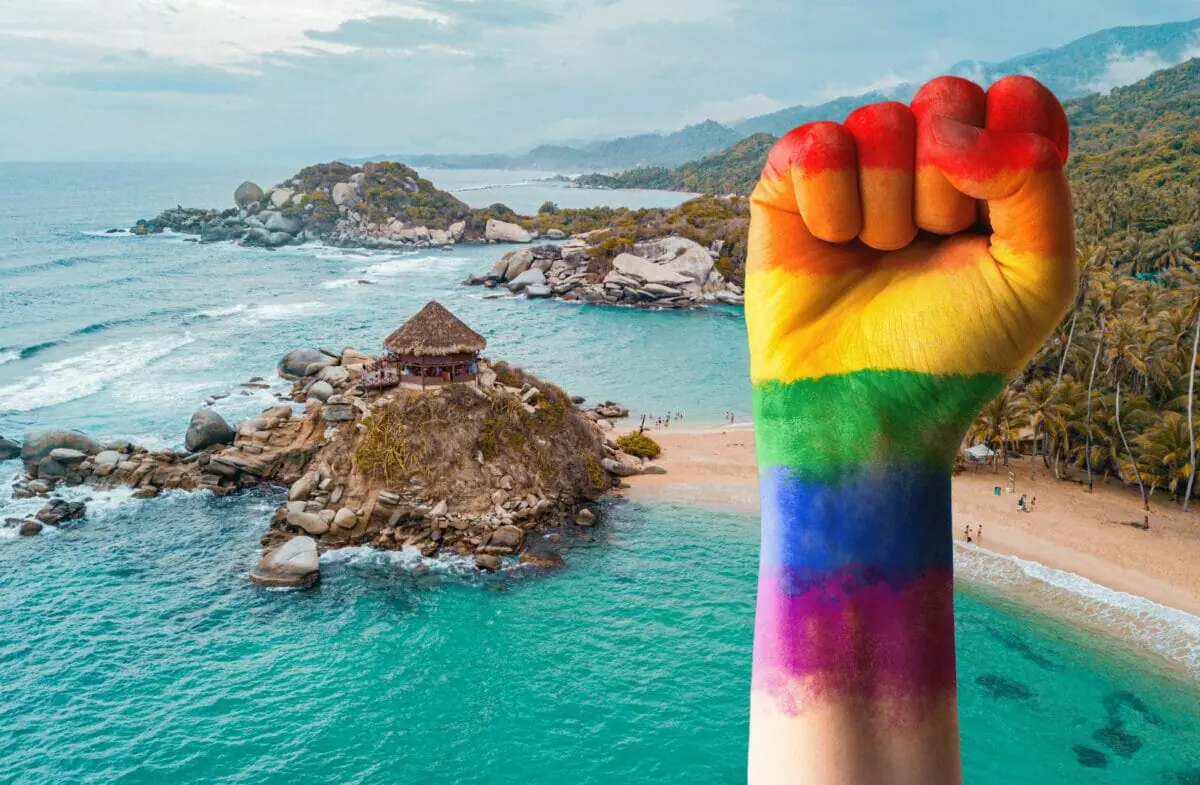LGBT rights in Colombia have experienced significant advancements over the past two decades. Lesbian, gay, bisexual, transgender, and intersex Colombians have become increasingly protected by the country’s laws, with notable milestones such as the recognition of same-sex relationships and adoption and parenting rights.
Colombia’s progress in LGBT rights has displayed a commitment towards a more inclusive society, with even the peace process with the Revolutionary Armed Forces of Colombia (FARC) historically recognizing LGBT+ people as the first in the world.
As a result of these legal and social strides, both local communities and foreign visitors have observed an improvement in the LGBT rights landscape in Colombia. However, it is essential for individuals to remain vigilant and informed, as situations may vary and change rapidly. Tourists should seek up-to-date information and advice before traveling, as well as learn about rights and protections specific to the regions they plan to visit.
To ensure safety and support, engaging with local LGBT advocacy groups can provide invaluable guidance and resources for individuals navigating the nuances of LGBT rights in Colombia. Furthermore, being aware of and attentive to the presence of bad actors is crucial. While Colombia’s progress toward greater LGBT rights is laudable, everyone needs to remain cautious and informed as circumstances and environments continue to evolve.
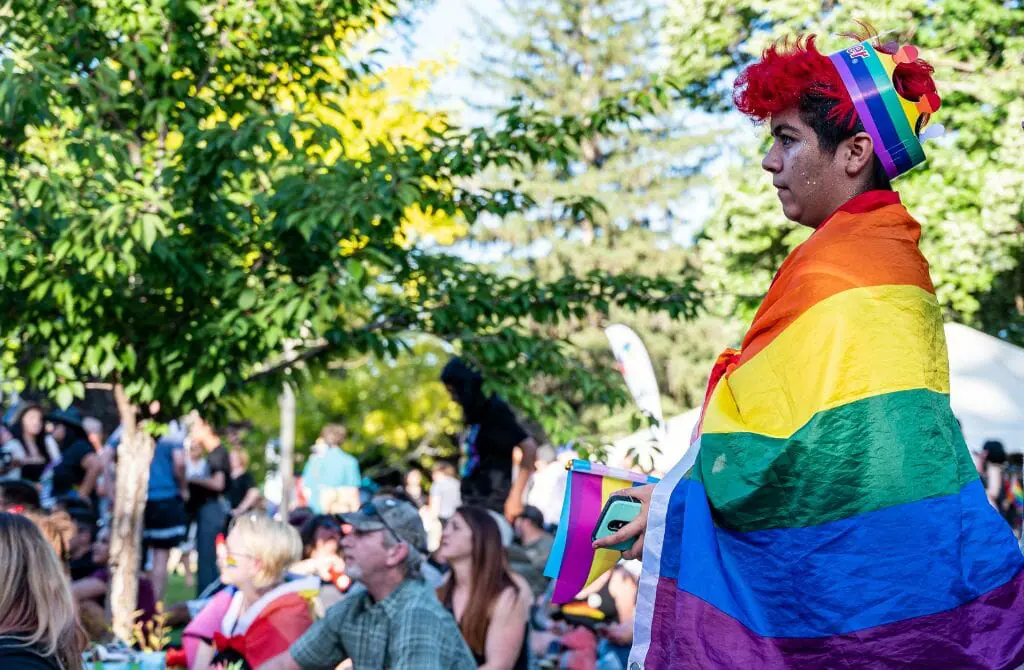
History Of LGBT Rights In Colombia
In the early 1980s, the LGBT community in Colombia had almost no visibility. However, in 1991, Colombia’s political constitution established Article 13, which declared that all people are born free and equal before the law and emphasized plurality and dignity as fundamental rights. This progress helped kickstart the development of LGBT rights in the country.
Throughout the 1990s and early 2000s, the LGBT rights movement achieved several milestones. In 1993, for example, homosexuality was decriminalized in Colombia. In the ensuing years, various legal protections emerged in areas such as employment, schools, and the provision of goods and services to ensure that members of the LGBT community would not be subjected to discrimination.
Bogota, the capital of Colombia, has been at the forefront of this progress, hosting a vibrant scene that includes annual gay pride parades.
In 2011, a landmark decision by the Constitutional Court granted same-sex couples the right to marry in Colombia, placing the country among the nations that recognize and protect the rights of its LGBT citizens. In 2015, the Colombian government enabled people to modify the gender marker on their identification documents, granting transgender individuals more visibility and recognition.
In 2016, a historic milestone was reached when Colombia became the first country in the world to specifically include LGBT+ people in a peace process with the Revolutionary Armed Forces of Colombia (FARC). This achievement indicated a commitment by the Colombian government to ensure the protection and integration of LGBT+ individuals into society. However, it is essential to remain vigilant, as situations can change rapidly, and bad actors are present in every country.
Various LGBT advocacy groups operate within Colombia to support and protect the rights of the community. As with all travel, it is imperative to seek current advice before visiting and to stay informed about local customs and practices. Remember that information can be out of date, and situations can change, so consult local experts and LGBT rights organizations for the latest news and advice.
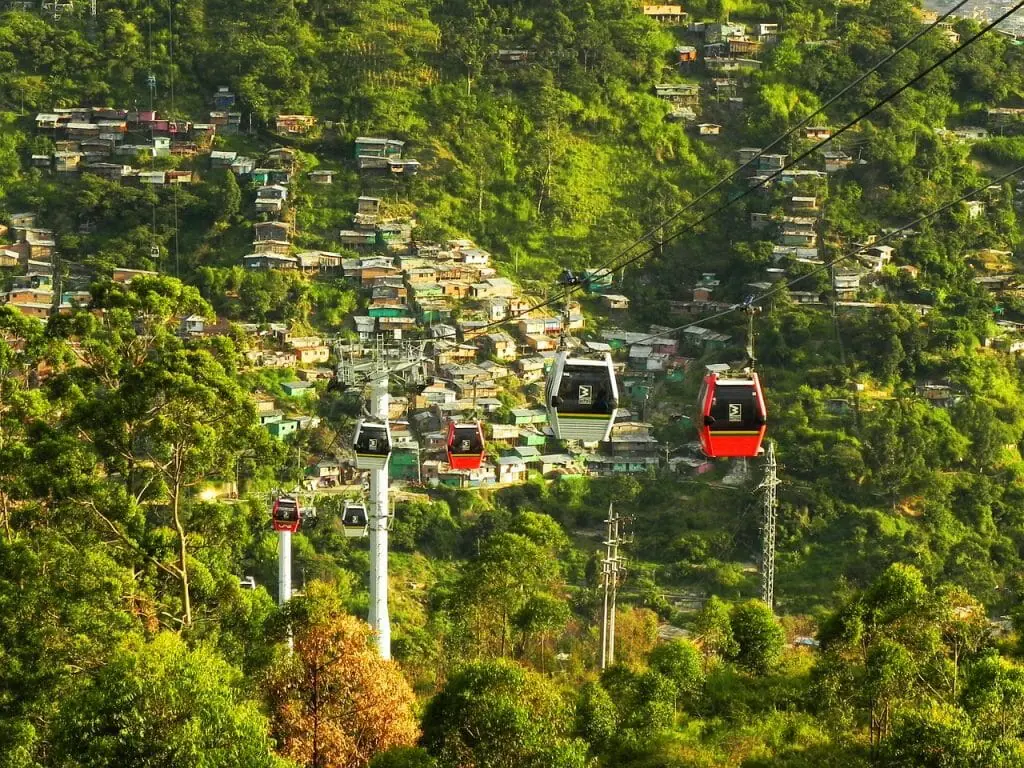
The LGBT Legal Situation In Colombia
LGBT rights in Colombia have progressed over the years, reflecting a more inclusive legal landscape for the local community. Homosexuality has been legal in the country since 1981, and significant anti-discrimination laws were enacted in 2011, establishing penalties, including prison sentences, for those convicted of discrimination. These penalties can increase under certain circumstances, such as when a discriminatory act occurs in a public place or is committed by a public official.
The Constitutional Court of Colombia has also played an essential role in advancing the legal rights of the LGBT community. In 2007, the court extended property and inheritance rights to same-sex couples. This decision came as a result of a constitutional action presented by the public interest law group from the Universidad de los Andes. Furthermore, the Constitutional Court supports the International Covenant on Civil and Political Rights, which contains protections for the right to recognition before the law.
Same-sex marriage has been legally recognized in Colombia since 2016, which has strengthened legal protections for LGBT couples, including access to adoption and pension rights. Furthermore, trans individuals can change their legal gender, a significant step in addressing the rights of gender-diverse citizens.
Despite these legal advancements, it is essential for both locals and tourists to remain vigilant and aware of the potential for discrimination or harassment. Situations can change rapidly, and the information provided here may become outdated, so it is crucial to seek current advice before traveling. Several LGBT advocacy groups, such as Colombia Diversa or Red Comunitaria Trans, can provide up-to-date information and support.
In conclusion, the legal situation for LGBT people in Colombia has improved over time, with essential progress made on multiple fronts, including anti-discrimination laws, same-sex marriage, and legal gender changes. However, caution is always advised when navigating local situations, and seeking advice from relevant organizations can help ensure a safe and informed experience for all.
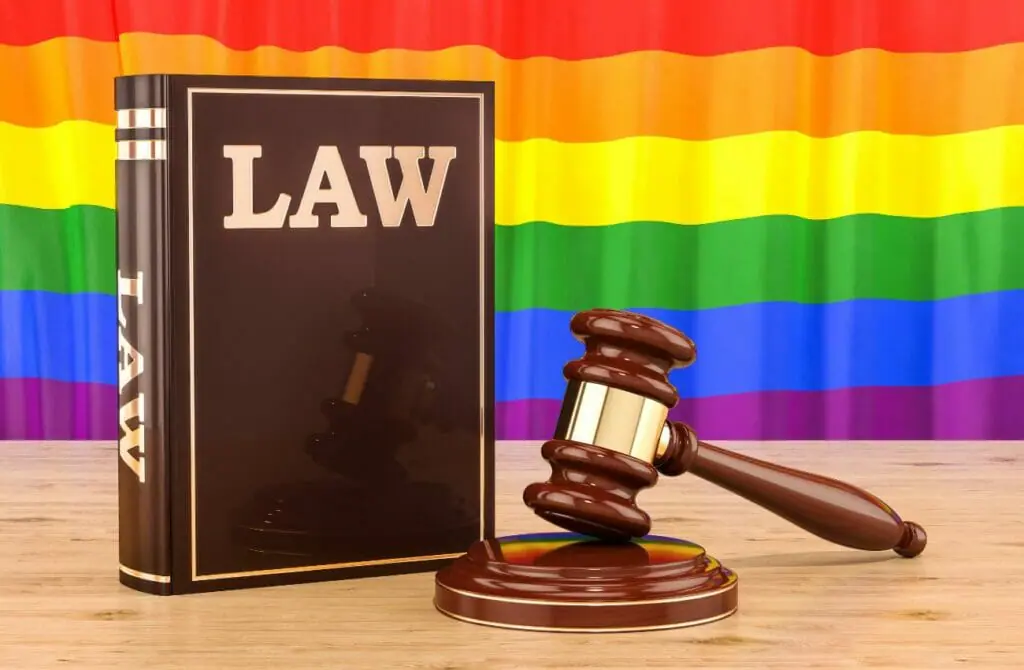

The LGBT Social Situation In Colombia
In Colombia, the LGBT community faces various challenges, including discrimination based on sexual orientation and gender identity. Despite legal advances, social acceptance of sexual and gender diversity is still an ongoing process. Recent polls indicate that opposition to same-sex marriage has decreased from 59% in 2016 to 52% in 2018, with support growing from 37% to 46% during the same period.
Transgender people in Colombia often encounter difficulties obtaining legal recognition and accessing social security. Even though same-sex couples have been granted rights similar to those of heterosexual couples, disparities remain in areas such as adoption and parenting, leading to inequality within the community. Additionally, public security forces have been accused of human rights violations against protestors, including members of the LGBT community, during demonstrations held in 2021.
Indigenous and Afro-descendant LGBT individuals face compounded challenges due to the intersection of their sexual and gender identities with race and ethnicity. The prevalence of gender-based violence, trafficking, and employment discrimination can present further obstacles to their well-being.
Conversion therapy remains a contentious issue in Colombia, as it is not explicitly prohibited by law. Trans people may face more targeted violence, and the country has experienced a concerning number of killings and suicides within the LGBT community.
To protect oneself in Colombia, it is essential to be aware of the current social situation and exercise caution, as attitudes and conditions can change rapidly. LGBT travelers should obtain up-to-date information about local attitudes and legislation and remain vigilant at all times.
Several LGBT advocacy groups operate in Colombia, including Colombia Diversa, Caribe Afirmativo, and Santamaría Fundación, which work to promote and defend the rights of the community. These organizations often provide resources and support for both locals and visitors, offering valuable insights into the current state of LGBT rights in the country.
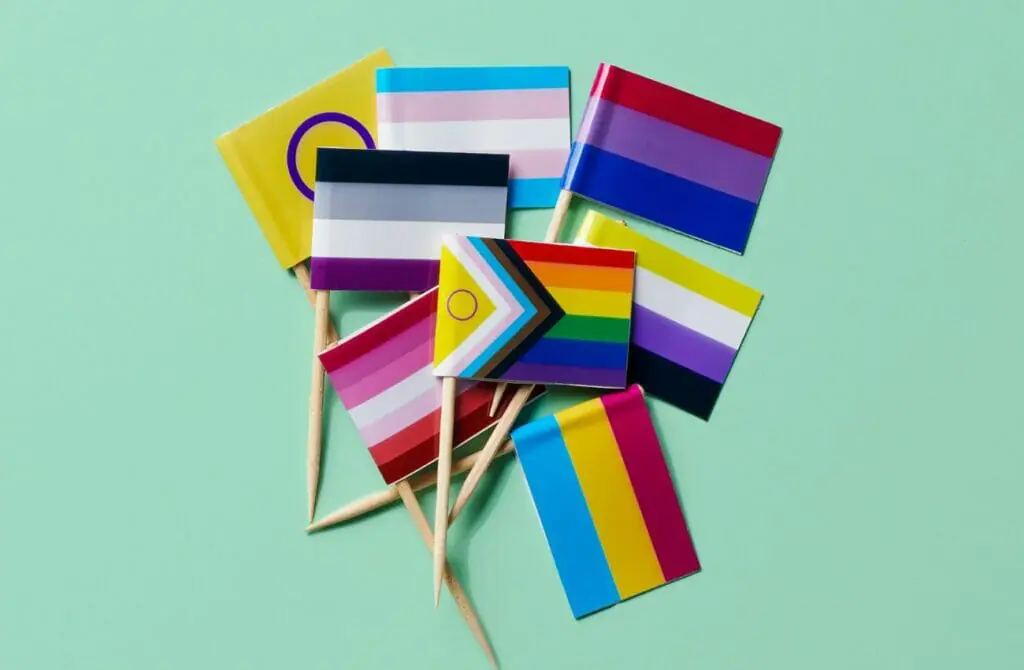
Trans Rights In Colombia
In recent years, Colombia has made progress in terms of transgender rights, granting them protections within the legal framework. In 2015, a law was passed making it possible for trans people to change their gender without the previously required physical exams, which was a significant advancement. However, there is still an uphill struggle to change society’s perceptions and ensure the rights of transgender individuals are respected in practice.
Colombia’s Constitutional Court has taken steps towards recognizing non-binary individuals and advancing gender diversity by acknowledging identities that do not fit the male/female binary. The inclusion of non-binary gender markers on documents such as birth certificates is still a work in progress. While Gay Argentina has approved such changes, Colombia has yet to establish a legal framework for the inclusion of a non-binary gender marker.
Transgender people in Colombia face challenges, and it is essential for both locals and tourists to remain vigilant about their safety. It is crucial to be aware of changes in the legal landscape and stay up-to-date with current advice before and during travels. Colombia’s local LGBT advocacy groups can provide guidance and support.
The United Nations also continues to monitor and report on the situation and works towards ensuring inclusion and the free development of personality for all, including transgender individuals.
Violence against transgender people remains problematic, and it is crucial to take steps to protect oneself and others. Staying connected with local initiatives and organizations that advocate for the rights and protection of transgender people is one way to ensure safety within the country.
In summary, transgender rights in Colombia have seen progress, but there is still a long way to go in terms of fostering societal acceptance and addressing the ongoing challenges faced by transgender individuals. Staying informed regarding the current situation, remaining vigilant, and connecting with advocacy groups are essential steps for both tourists and locals in Colombia.
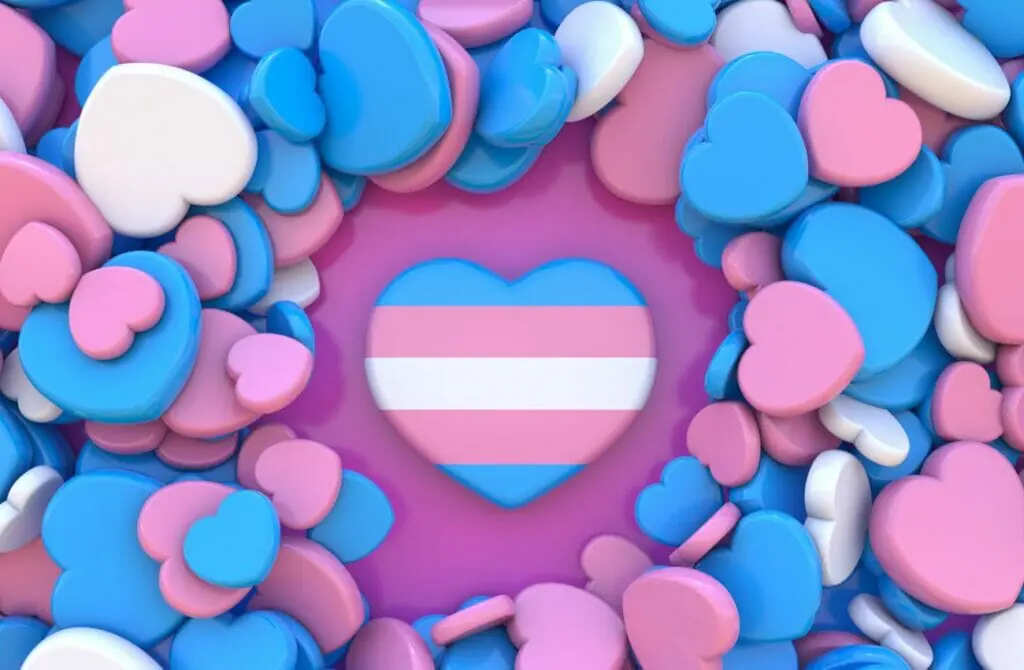

The Future For The Queer Community In Colombia
The future of LGBT rights in Colombia presents both opportunities and challenges. While significant progress has been made over the past two decades, including the historic recognition of LGBT+ people in the peace process with the Revolutionary Armed Forces of Colombia (FARC), there remains much work to be done.
The end of the armed conflict with FARC and ongoing peace negotiations with the National Liberation Army (ELN) have led to an increased focus on human rights issues, including those of the LGBT+ community. However, the Covid-19 pandemic has also created new challenges, such as increased vulnerability due to lockdowns and limited access to essential services for LGBT+ individuals.
In this evolving landscape, key players like the United Nations and local advocacy groups, such as the Public Interest Law Group at the Universidad de los Andes, are continuing to push for expanded rights and protections for LGBT+ Colombians. These organizations are working to promote policy changes, such as increased access to adoption agencies for same-sex couples and the formal recognition of gender non-conforming individuals.
While significant progress has been made in terms of legal protections and social acceptance, violence against the LGBT+ community continues to be a pressing issue in Colombia. In this context, it is crucial that both local people and tourists remain vigilant and well-informed about the situation on the ground.
When providing advice to LGBT+ individuals planning to visit Colombia, it is important to remind them that the situation can change rapidly and that information may become outdated. As such, travelers should seek up-to-date advice from reputable sources and be aware of any relevant changes in local laws and attitudes.
Lastly, it is important to recognize and support the work of local LGBT+ advocacy groups in Colombia, who continue to drive change and improve the lives of LGBT+ individuals in the country. Their efforts are essential to building a future where every person, regardless of their sexual orientation or gender identity, can enjoy their human rights and live a life free from discrimination and violence.
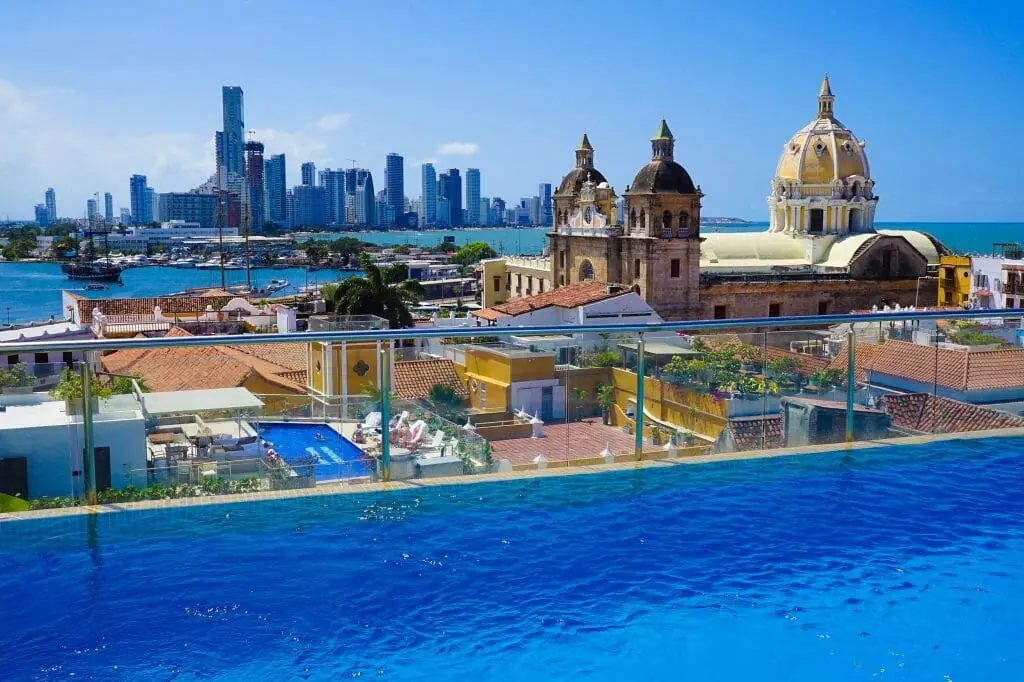
Protect Yourself While Travelling In Gay Colombia
While Colombia has made significant progress in terms of LGBT rights, it is still essential for both locals and tourists to be cautious and vigilant in certain situations. It is important to note that, like any country, the situation can change rapidly, and information may become outdated. Thus, always seek current advice before traveling.
Interactions with police and public security forces may pose potential risks for the LGBT community. Although the country’s laws protect against discrimination based on sexual orientation and gender identity, isolated incidents of police violence or misconduct could still occur.
Members of the LGBT community are advised to be careful when dealing with authorities and to remain aware of their surroundings at all times. Civil society groups can be valuable resources for support and advice on dealing with law enforcement and public security forces.
In addition to police and security forces, violence and discrimination can also be potential threats to the well-being of LGBT individuals in Colombia. Although such incidents are less common in more progressive urban areas, caution is still encouraged. It is crucial to be aware of your surroundings and avoid situations that could potentially escalate into violence or harassment. If you find yourself in an unsafe situation, do not hesitate to contact local authorities or an LGBT advocacy group for assistance.
One way to protect yourself while traveling in Colombia is to research and connect with relevant LGBT advocacy groups. Organizations like Colombia Diversa and the International Gay and Lesbian Travel Association (IGLTA) can provide useful information regarding safety, rights, and available support in the country. They can also offer up-to-date information on the current political, social, and legal climate for the LGBT community.
To summarize, it is crucial for LGBT individuals in Colombia to remain cautious and vigilant. Always stay updated on the current situation, be aware of your surroundings, reach out to relevant advocacy groups for support, and take necessary precautions to ensure your safety.
